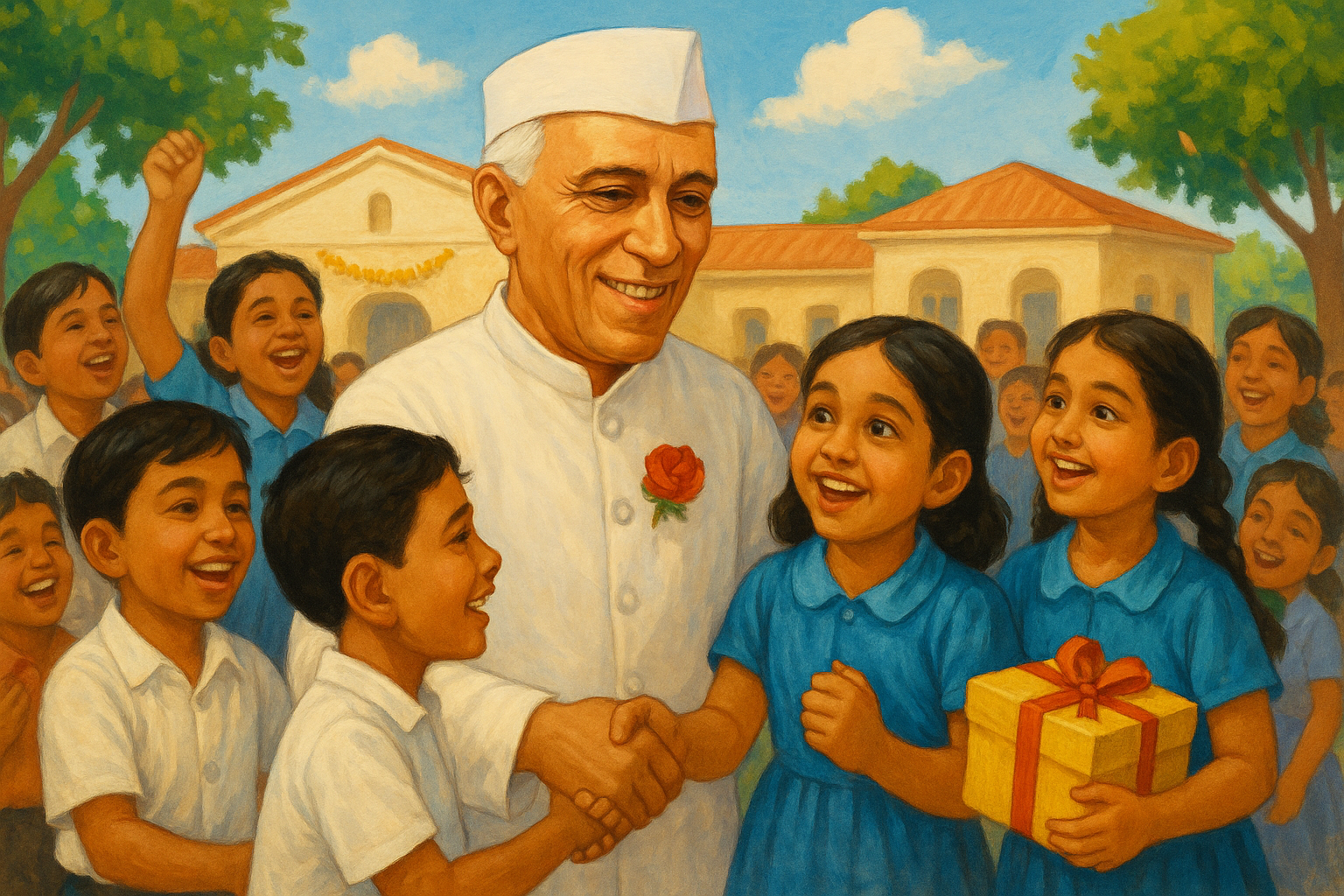
Children’s Day
The schools in Goa and across the country will be celebrating Children’s Day on November 14, which is the birthday of the first Prime Minister of India Jawaharlal Nehru who was known to have been fond of children. On this day, many educational and motivational programs for children are held in the country. Some schools celebrate the day and distribute sweets to students.
If we peep in the pages of history books, we find that it was on November 5, 1948, that the first Children’s Day was observed as ‘Flower Day’ by the predecessor of Indian Council of the Child Welfare (ICCW) to collect funds for United Nations Appeal for Children (UNAC) through the sale of flower tokens. On 30 July 1949, ‘Children's Day’ was widely celebrated and publicised through radio, articles, cinema, etc.
While Nehru's birthday (November 14) had publicly been celebrated all over India and among overseas Indians, since the 1940s, with public meetings being organised to pay tribute to him and games for children being held; it was only in 1954 that the day was first celebrated as ‘Children's Day’. More than 50,000 schoolchildren attended the celebrations in National Stadium in Delhi that day.
On November 14, 1957, several white pigeons were released during the function in the National Stadium. One of the pigeons came back and sat on Nehru's head. In 1957, 14 November was officially declared Children's Day in India by a special government edict. The Government of India's Department of Posts and Telegraphs issued first day covers and three commemorative stamps on Bal Din (Children's Day).
Jawaharlal Nehru was affectionately called Chacha Nehru by children. As the Prime Minister, Nehru wanted to create an atmosphere in the country where the attention is constantly focused on children and their welfare. He had also established Children's Film Society India in 1955 so that Indian children could see themselves represented.
Regarding Nehru's concern for children and their welfare, M O Mathai wrote in his book My Days With Nehru (1979), "Nehru saw in their innocent faces and sparkling eyes the future of India. He was convinced that no amount of money spent on children and their mothers was too much, and that it was a sound investment for the future." When asked by Ram Narayan Chaudhary in an interview in 1958, if he was fond of children because the future of the country depended on the children, Nehru had replied, "I have always felt that the children of today will make the India of tomorrow, and, the way we bring them up will determine the future of the country."
Sir Walter Crocker, however, mentioned in Nehru's biography Nehru: A Contemporary's Estimate (1966) that Nehru did not really have time for or enjoyed the company of children. He wrote, "Nehru certainly did some acting on public occasions and before the TV cameras; but never much. The acting was never worse than the pose of Cha Cha (Uncle) Nehru with the children. This was at its worst on his birthday for a few years when sycophants organised groups of children, with flowers and copious photographing, to parade with him. It was out of character; his interest in children was slender. But his acting was on the periphery of his personality. He did not fake."